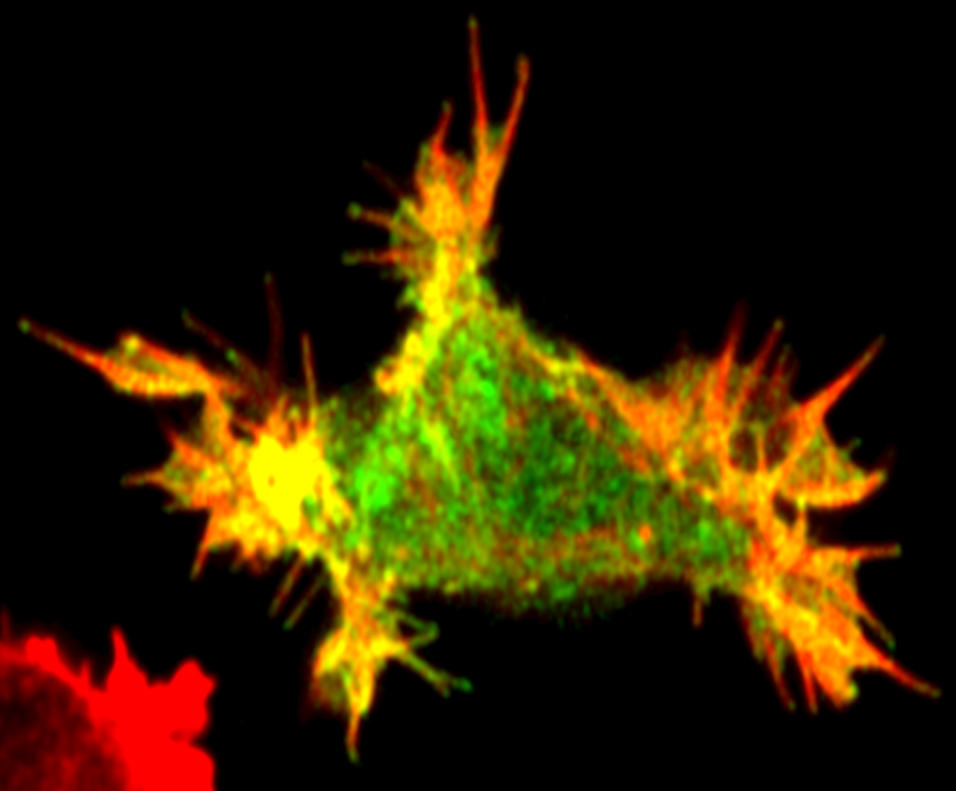Selected Publications
1. Petsalaki E and Zachos G. An ATM-CHK2-INCENP pathway prevents chromatin breakage by regulating the abscission checkpoint. Molecular & Cellular Oncology, 2021 Feb 8
https://doi.org/10.1080/23723556.2021.1877999
2. Petsalaki E and Zachos G. An ATM-Chk2-INCENP pathway activates the abscission checkpoint. Journal of Cell Biology, 2021 Feb 1;220(2):e202008029. doi: 10.1083/jcb.202008029.
https://pubmed.ncbi.nlm.nih.gov/33355621/
3. Petsalaki E and Zachos G. DNA damage response proteins regulating mitotic cell division: double agents preserving genome stability. The FEBS Journal 287: 1700-1721, 2020.
https://pubmed.ncbi.nlm.nih.gov/32027459/
4. Petsalaki E and Zachos G. Building bridges between chromosomes: novel insights into the abscission checkpoint. Cellular and Molecular Life Sciences 76: 4291-4307, 2019.
https://pubmed.ncbi.nlm.nih.gov/31302750/
5. Petsalaki E, Dandoulaki M and Zachos G. Chmp4c is required for stable kinetochore-microtubule attachments. Chromosoma 127: 461-473, 2018.
https://pubmed.ncbi.nlm.nih.gov/29968190/
6. Dandoulaki M, Petsalaki E, Sumpton D, Zanivan S and Zachos G. Src activation by Chk1 promotes actin patch formation and prevents chromatin bridge breakage in cytokinesis. Journal of Cell Biology 217: 3071-3089, 2018.
https://pubmed.ncbi.nlm.nih.gov/29954829/
7. Petsalaki E and Zachos G. Novel ESCRT functions at kinetochores. Aging (Albany NY) 10: 299-300, 2018.
https://pubmed.ncbi.nlm.nih.gov/29562220/
8. Petsalaki E and Zachos G. CHMP4C: A novel regulator of the mitotic spindle checkpoint. Molecular & Cellular Oncology 5: e1445944, 2018.
https://pubmed.ncbi.nlm.nih.gov/30250900/
9. Petsalaki E, Dandoulaki M and Zachos G. The ESCRT protein Chmp4c regulates mitotic spindle checkpoint signaling. Journal of Cell Biology 217: 861-876, 2018.
https://pubmed.ncbi.nlm.nih.gov/29362225/
10. Zachos G. TIPs for shaping Aurora B activity. Nature Chemical Biology 12: 204-205, 2016.
https://pubmed.ncbi.nlm.nih.gov/26991084/
11. Petsalaki E and
Zachos G. Clks 1, 2 and 4 prevent chromatin breakage by
regulating the Aurora B-dependent abscission checkpoint. Nature Communications
7: 11451, 2016. doi 10.1038/10.1038/ncomms11451.
https://pubmed.ncbi.nlm.nih.gov/27126587/
12. Petsalaki E, Dandoulaki M, Morrice N and Zachos G. Chk1 protects against chromatin bridges by constitutively phosphorylating BLM serine 502 to inhibit BLM degradation. Journal of Cell Science 127: 3902-3908, 2014.
https://pubmed.ncbi.nlm.nih.gov/25015292/
13. Petsalaki E and Zachos G. Chk2 prevents mitotic exit when the majority of kinetochores are unattached. Journal of Cell Biology 205: 339-356, 2014.
https://pubmed.ncbi.nlm.nih.gov/24798733/
14. Petsalaki E and Zachos G. Chk1 and Mps1 jointly regulate correction of merotelic kinetochore attachments. Journal of Cell Science 126: 1235-1246, 2013.
https://pubmed.ncbi.nlm.nih.gov/23321637/
15. Petsalaki E, Akoumianaki T, Black EJ, Gillespie DA and Zachos G. Phosphorylation at serine 331 is required for Aurora B activation. Journal of Cell Biology 195: 449-466, 2011.
https://pubmed.ncbi.nlm.nih.gov/22024163/
NEWS
- Jan 2021; A novel mechanism of carcinogenesis. Our lab has identified a novel signaling pathway that helps human cells detect abnormal DNA structures called "chromatin bridges" that can lead to carcinogenesis. These findings, published in the Journal of Cell Biology, could lead to better understanding of the origins of the disease.
https://pubmed.ncbi.nlm.nih.gov/33355621/ - Dec 2020; H.F.R.I. grant award. Dr Eleni Petsalaki has received a prestigious grant award of ~180,000 euros for three years from the Hellenic Foundation for Research and Innovation to investigate the molecular mechanisms by which human cells prevent chromatin bridges from breaking in cytokinesis.
